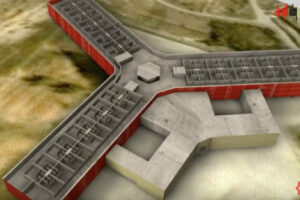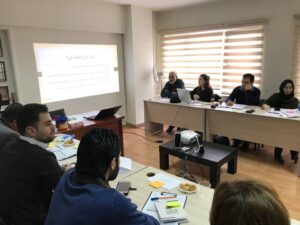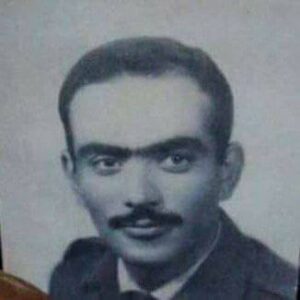Yesterday, on April 10, 2021, Nayef Hammad Saeed, also known as Abu Karam, died in Adra Central Prison in Damascus after being incarcerated for 26 years without clear charges.
Born Palestinian and holding Jordanian nationality, Saeed was arrested by Syrian intelligence in 1995 on charges of “possessing confidential documents crucial to state security.” Throughout his detention, he endured torture and mistreatment, including nearly a year in solitary confinement. He was subjected to a one-minute proceeding in the Military Field Court, during which he was not informed of the length of his sentence and was denied legal representation or contact with his family. Saeed was then incarcerated in Seydnayah Prison, where he was isolated from visitors and outside communication for a decade.
Despite being 73 years old and suffering from diabetes and heart disease, Saeed was neither released nor had his sentence reduced. Multiple attempts by his family and Jordanian authorities to secure his release also proved unsuccessful. The most recent effort occurred in 2007, during a visit to Damascus by King Abdullah II of Jordan. At that time, Saeed and five other Jordanian detainees were transferred from Seydnayah Prison to the Military Intelligence Division in anticipation of their release. However, the Syrian regime abruptly canceled their imminent release and returned them to Seydnayah, where they remain incarcerated to this day.
As the Syrian revolution began and the regime systematically emptied Seydnayah Prison, Saeed was relocated to Damascus Central Prison, also known as “Adra,” on June 29, 2011. He remained there until his death.
The Association of Detainees and Missing Persons in Seydnayah Prison extends its heartfelt condolences to the grieving families, wishing them strength and comfort during this difficult time. The Association also holds the Syrian regime responsible for his death and the declining health conditions of other detainees. This is due to the regime’s stubborn refusal to acknowledge humanitarian appeals for their release and its failure to meet even basic standards of care and protection for those in custody.
Saeed’s case is among five meticulously documented by the Association of Detainees and Missing Persons in Seydnayah Prison. These involve Jordanian and Palestinian detainees who have been held since the previous century without specific charges. These individuals have endured torture and mistreatment and have been subjected to trials that fall far short of basic standards for fair legal proceedings. The Syrian regime has remained unyielding in its detention of these individuals, ignoring all efforts, negotiations, and appeals for their release. Many of them suffer from chronic illnesses. The detainees are as follows:
Walid Ayoub Barakat: A Palestinian-Jordanian national, Barakat has been in detention since 1982 and has yet to face trial.
Bashar Sharif Ali Saleh: A Palestinian national from the city of Jenin, Saleh has been in custody since 1985 without a trial.
Faisal Hammad Saeed: Nayef’s brother, Faisal, has been under detention since 1995, also without undergoing a trial.
Ibrahim Hassan Ali Al-Saqour: A Jordanian national, Al-Saqour was arrested in 1999 and faced the Supreme State Security Court, which sentenced him to 15 years in prison. Despite completing his sentence, Syrian authorities continue to detain him in Damascus Central Prison, accusing him of being a key figure in the 2008 Seydnayah Prison uprising.
The Association is prepared to provide any information or assistance needed by the Jordanian authorities or the families of the aforementioned detainees, whether it pertains to their current health conditions, the duration or reasons for their detentions, or their current locations.
The Association of Detainees and Missing Persons in Seydnayah Prison
April 11th, 2021






